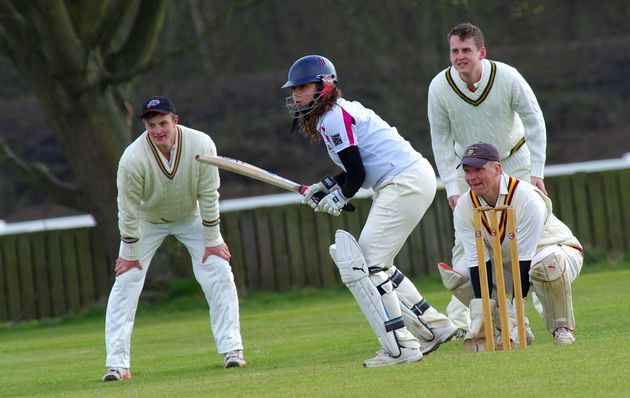Small blessings are still blessings; if it’s good, then it comes from above (James 1:17).
 Photo: Pixabay (CC0)
Photo: Pixabay (CC0)
Anybody with the slightest understanding of cricket will have been transfixed by the events of this summer.
On 14th July, New Zealand were on course to win the World Cup—bar a miracle. Several minor miracles later and their English opposition were jumping about like bucking broncos on a sugar rush, celebrating their triumph.
Professional sport is full of vested interest, and corruption often masquerades as the ‘miraculous’, but these events went well beyond what could have been orchestrated.
The cynic gave way to the mystic; as several commented, ‘it seems like the fortunes of English cricket are written in the stars.’ Of course, this is exaggeration. But it raises a question nonetheless: does God have anything to do with all of this cricketing good fortune?
Quite apart from the complaint that this would give teams an unfair advantage, surely this is all too trivial. Why would the King of the Universe be concerned with a result of a game (yet alone one played on a Sunday!)?
Small blessings are still blessings
For a start, we need to be honest with ourselves: trivial prayers make up an embarrassingly large proportion of our communication with God.
Whether it’s for a parking place in town, an unbroken night’s sleep, or a dry evening for that party we’ve been planning, Christians can hardly claim that they only pray for history-shaping causes.
Whilst our desperate concern for such ‘first world problems’ should prompt a re-examining of priorities, the conviction that these little things matter is not completely unfounded.
Small blessings are still blessings; if it’s good, then it comes from above (James 1:17).
The question, therefore, is whether cricket is in any way ‘good’. CS Lewis gives one response to this question in The Screwtape Letters, when a senior devil warns a junior one:
‘I would make it a rule to eradicate from my patient any strong personal taste which is not actually a sin, even if it is something quite trivial such as a fondness for county cricket or collecting stamps or drinking cocoa. Such things, I grant you, have nothing of virtue in them; but there is a sort of innocence and humility and self-forgetfulness about them which I distrust.’
But can we push this further? Whilst there may seem to be only a little virtue in watching the sport per se, for some this is the only viable means of participation.
Calum Samuelson has already outlined a broad biblical perspective on playing sport in his paper Redeeming Sport?, but cricket has its own particular merit (one that often remains a mystery to North Americans).
Cricket as community
I myself only ‘got into the game’ a few months ago when I played my first ever season for a village club near Darlington. Immediately, I saw that cricket gives an opportunity for aesthetic enjoyment of Creation (only occasionally disturbed by actually having to do something), but more importantly, I saw that the breadth of participation in cricket can be exceptional.
Our players ranged from aged 12 to 70, and the gruff Yorkshiremen batting against us soon learned to respect our two female players. In fact, despite the caricature of impenetrable rules and interminable matches, there was plenty of competition and tension.
True, only the English could invent a sport with a mandatory tea break, complete with pork pies and ginger cake.
But the fact that both teams eat together underlines the healthy sense of community that cricket clubs foster.
More specifically, having multiple generations playing together, sometimes from the same family, gives the game a relationship-building function that Christians should welcome at a time when the cultural tide is moving in the opposite direction.
In fact, one of the more encouraging things about professional sport today is the way that families seem to be valued within it. An interesting point made about this year’s world cup winners was how they differed to their laddish counterparts from the 2005 team in exactly this respect.
So, despite the fact that England couldn’t win the Ashes this year, this current squad’s culture better highlights the community value of cricket.
Well-spent leisure time
Which brings us back to our question: what place does cricket have in God’s design?
It’s clearly problematic to claim in any simple sense that God orchestrates victories for particular teams or individuals. But if we see cricket in terms of its social impact on local communities, then World Cup success takes on a different complexion.
To start, we can be thankful for the impetus it gives to participation at grass roots level. As with everything else provided for the just and the unjust alike (Matthew 5:45), there is nothing intrinsically redemptive about this or any other game.
Still, those Christians with the privilege of leisure time have a responsibility to spend it well, and to do so in a way that befits the new life of the gospel and affords opportunities to witness to it.
There are plenty of indulgent, individualistic and insalubrious ways to relax. Within this context we should affirm how cricket is divinely designed—and perhaps even give it a try?
Matt Wiliams.This blog was first published in Jubilee Centre website and was republished with permission.

Las opiniones vertidas por nuestros colaboradores se realizan a nivel personal, pudiendo coincidir o no con la postura de la dirección de Protestante Digital.
Si quieres comentar o